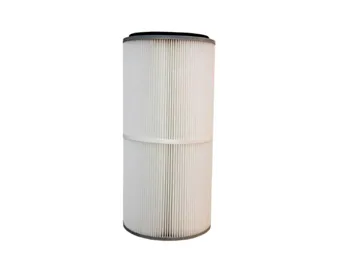 Tel:
+8615930870079
Tel:
+8615930870079
12月 . 14, 2024 15:38 Back to list
Understanding the Benefits and Applications of Metal Filter Elements in Filtration Systems
The Significance of Metal Filter Elements in Industrial Applications
In today's world, filtration technology plays a crucial role in various industrial processes, ensuring the purity and efficiency of systems. Among the various types of filters, metal filter elements have gained prominence due to their durability, efficiency, and versatility. These components serve as critical parts of filtration systems across multiple industries, including automotive, aerospace, oil and gas, pharmaceuticals, and food processing.
Metal filter elements are designed to remove contaminants and particulates from liquids and gases. The core materials used in manufacturing these filters often include stainless steel, aluminum, and other alloys. Their construction allows them to withstand extreme temperatures, pressures, and aggressive chemical environments, making them essential in operations where plastic or fiber filters would fail quickly.
One of the primary advantages of using metal filter elements is their longevity. Unlike traditional filters, which may need frequent replacements, metal filters can often be cleaned and reused. This feature is particularly beneficial in industrial applications where downtime for replacement can be costly. The ability to regenerate and reuse metal filters not only improves operational efficiency but also contributes to sustainability by reducing waste and resource consumption.
Furthermore, metal filters exhibit excellent flow characteristics. Their design can be tailored to achieve specific porosity and flow rates, ensuring optimal performance in diverse applications. For instance, sintered metal filters can be engineered to provide precise pore sizes, capturing specific contaminants while allowing the desired flow of fluids or gases. This customization makes them suitable for specialized tasks, such as in high-precision manufacturing processes.
metal filter element

In the automotive industry, metal filter elements are utilized to ensure the cleanliness of fuel and oil in engines. By removing particulates and contaminants, these filters help maintain optimal engine performance and extend the lifespan of critical components. Similarly, in the aerospace sector, metal filters are essential for hydraulic systems, where the presence of impurities could lead to failures in flight operations.
The oil and gas industry also benefits significantly from metal filter technology. These filters are integral in separating debris and contaminants from extraction and refining processes. Given the harsh environments in which they operate, metal filters provide the necessary strength and resistance to corrosion, ensuring reliable operation in the field and preventing costly breakdowns.
In the pharmaceutical and food processing industries, where hygiene and product safety are paramount, metal filter elements offer advantages in terms of sterility and cleanability. They can be subjected to high-pressure steam or chemical cleaning protocols, making them suitable for processes that require stringent sanitation standards. The reliability of metal filters in these sectors is crucial, as any failure could lead to significant health risks and financial loss.
The advancements in manufacturing technologies have further enhanced the functionalities of metal filter elements. Techniques such as additive manufacturing (3D printing) allow for the production of intricate filter designs that optimize filtration efficiency and provide unique solutions for complex industrial challenges. As industries continue to evolve, the integration of new materials and production methods will likely lead to even better-performing metal filter elements.
In conclusion, metal filter elements are a vital component in a multitude of industrial applications, providing unmatched durability, efficiency, and sustainability. Their ability to withstand extreme conditions while delivering precise filtration makes them indispensable in sectors where the purity of fluids and gases is critical. As technological innovations continue to emerge, the role of metal filters will undoubtedly expand, promising to enhance operational efficiencies and safety across various industries. With these benefits in mind, investing in high-quality metal filter elements is a decision that can lead to significant long-term advantages for any industrial operation.
-
Nano Fiber Technology: Revolutionizing Cartridge Dust Collector FiltersNewsAug.06,2025
-
How Activated Carbon Air Cartridges Eliminate OdorsNewsAug.06,2025
-
Dust Filter Cartridge Handling Fine Particulate MatterNewsAug.06,2025
-
Cartridge Dust Collector Filter for Welding Fume ExtractionNewsAug.06,2025
-
Activated Carbon Filter Cartridge Effectiveness Against VOCsNewsAug.06,2025
-
Activated Carbon Air Filter Cartridge Benefits ExplainedNewsAug.06,2025

 Email:
Email:





